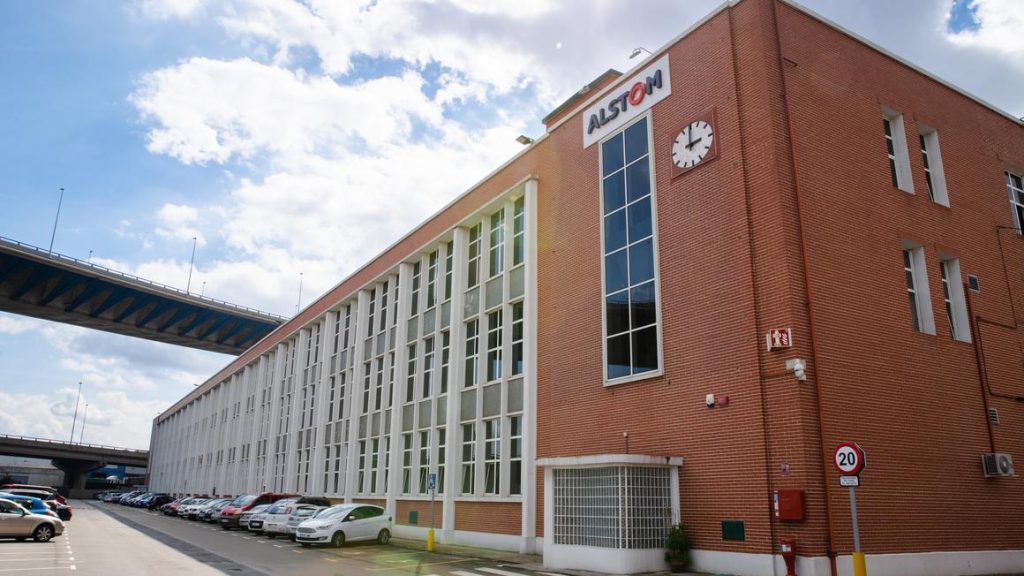 Alstom has expanded the photovoltaic installation at its Trápaga plant in the Basque Country, by commissioning 30 new solar panels to the 91 already installed in 2021. The total energy generated, which will amount to 50,000 kWh per year, will produce 15% of the total energy consumed by the site.
Alstom has expanded the photovoltaic installation at its Trápaga plant in the Basque Country, by commissioning 30 new solar panels to the 91 already installed in 2021. The total energy generated, which will amount to 50,000 kWh per year, will produce 15% of the total energy consumed by the site.
The installation will develop enough energy to power elements such as lighting, office IT equipment and the power outlets of the production line. It also reduces energy consumption at peak times, when more power is required. The site also has a 100% renewable electricity supply contract for all its operations.
The Trápaga plant will reduce the CO2 emissions by up to 22 tonnes per year thanks to the energy generated for self-consumption and energy saving measures.
Along with using renewable energies, the Basque plant is developing energy efficiency measures to ensure the proper management of resources. Thus, energy consumption is constantly monitored to make adjustments and reduce total consumption. Numerous investments are being made in the facilities to reduce overall energy consumption in lighting systems, air conditioning, home automation, thermal insulation, etc.
“With this new equipment, the site establishes a new milestone in achieving Alstom’s objectives in terms of sustainability and reducing the carbon footprint of its operations. As a company, we are committed to reducing the carbon footprint of all our operations,” Diego García, site Managing Director of the Trápaga industrial site said.
Alstom Group is committed to the scientific targets for reducing CO2 emissions within the framework of the United Nations agreements. By 2025, Alstom intends to reduce by 25% the CO2 emissions in solutions developed by the group worldwide. The company is committed to use renewable energy sources to deliver 100% of the electricity at its sites and to use a minimum of 25% recycled content in newly developed rolling stock. Alstom’s eco-design criteria will drive 100% of new solutions to reduce impact throughout the entire life cycle from manufacturing, to operation and end-of-life.
For 2030, the company is committed to reduce by 40% the direct and indirect CO2 emissions at its sites, compared to FY2021/22, and aims at a 35% reduction in indirect emissions from use of sold products in gCO2/pass.km and gCO2/ton.km, compared to FY2021/22.
The company is committed to achieve net zero carbon in the value chain by 2050.
Share on:



